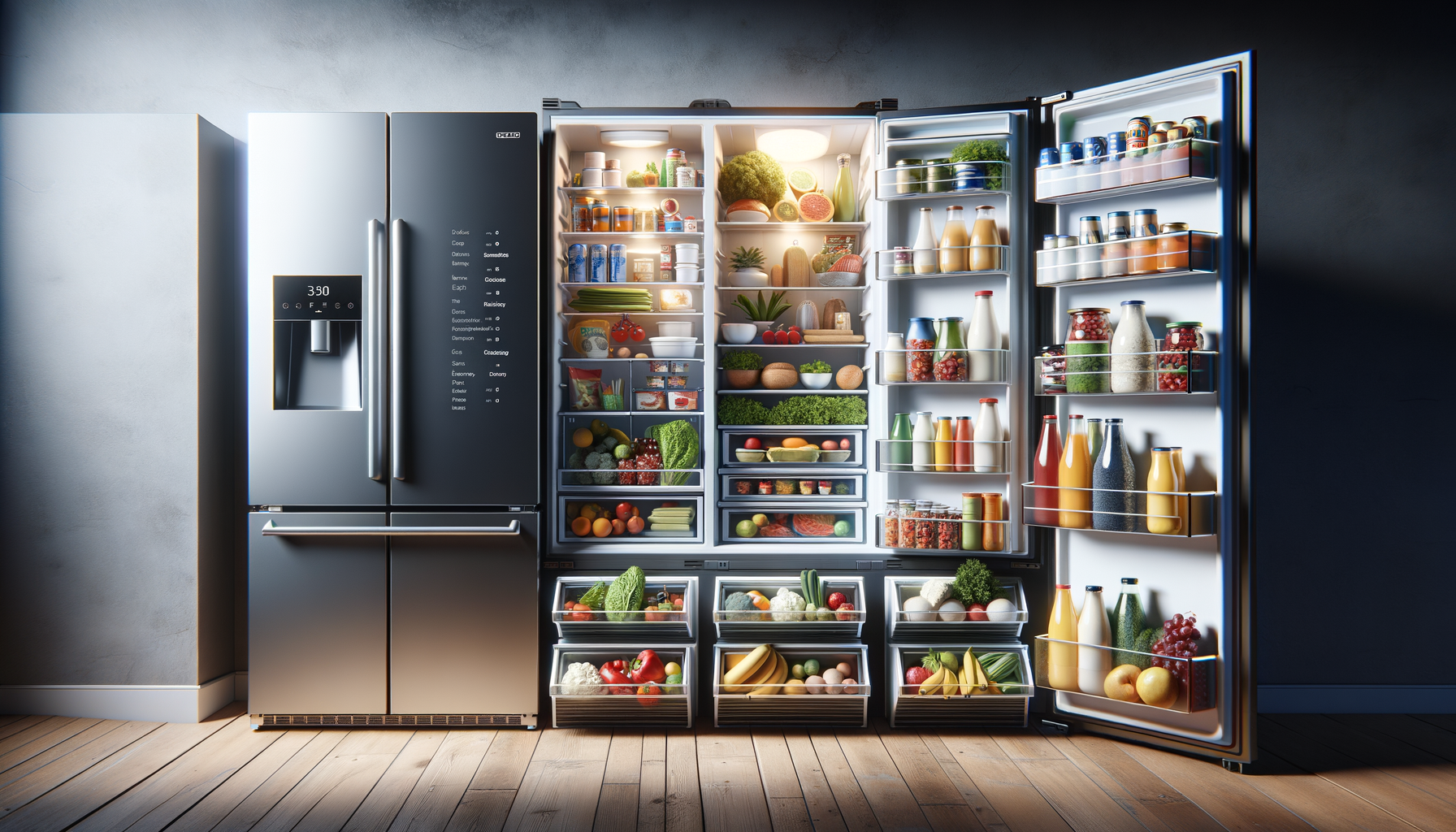
Navigating the World of Refrigerators: Options and Value Deals
Understanding Different Types of Refrigerators
Refrigerators come in various styles, each designed to meet specific needs. The most common types include top-freezer, bottom-freezer, side-by-side, French door, and mini fridges. Top-freezer models are traditional and often more affordable, making them a popular choice for budget-conscious buyers. They offer ample space and are known for their energy efficiency. Bottom-freezer models, on the other hand, place refrigerated items at eye level, which can be convenient for frequent use. Side-by-side refrigerators split the fridge and freezer vertically, providing easy access to both sections. French door models combine the features of side-by-side and bottom-freezer designs, offering a spacious fridge section with a bottom freezer drawer. Lastly, mini fridges are ideal for small spaces or as an additional cooling unit.
When choosing a refrigerator, consider the space available in your kitchen and your storage needs. For instance, a French door model may be suitable for larger kitchens and families, while a mini fridge could serve well in a dorm room or office. Each type has its pros and cons, so understanding these can help you make an informed decision.
Energy Efficiency and Technological Features
Modern refrigerators offer a range of technological advancements aimed at improving energy efficiency and convenience. Energy-efficient models are designed to consume less electricity, which can lead to significant savings on utility bills over time. Look for fridges with the Energy Star label, as they meet strict energy efficiency guidelines set by the government.
In terms of technology, many refrigerators now come equipped with smart features. These can include Wi-Fi connectivity, allowing you to control settings remotely via a smartphone app. Some models offer touch screens, internal cameras to view contents without opening the door, and even voice-activated controls. These features not only enhance convenience but also help in maintaining optimal food storage conditions.
When evaluating energy efficiency and technology, consider your lifestyle and how these features align with your daily routine. While advanced features can add to the cost, they can also offer long-term benefits in terms of energy savings and ease of use.
Exploring Value Deals and Pricing
Finding the right refrigerator at a reasonable price involves understanding the factors that influence pricing. These factors include brand reputation, model type, size, and features. Higher-end models with advanced technology and larger capacities generally come with a higher price tag. However, there are often value deals available, especially during sales events like Black Friday or end-of-season clearances.
To secure a good deal, it’s wise to compare prices across different retailers and consider refurbished models, which can offer significant savings. Additionally, some stores offer package deals if you’re purchasing multiple kitchen appliances, which can further reduce costs.
Remember to factor in the long-term savings of an energy-efficient model when considering the initial investment. While the upfront cost may be higher, the reduction in energy bills can make these models more economical over time.
Maintenance and Longevity
Proper maintenance is key to extending the life of your refrigerator and ensuring it operates efficiently. Regular cleaning of the interior and exterior, including condenser coils, can prevent dust buildup that can affect performance. It’s also important to check the door seals for any signs of wear, as damaged seals can lead to energy loss.
Many refrigerators come with a manufacturer’s warranty, which typically covers parts and labor for a certain period. It’s advisable to understand the terms of the warranty and consider purchasing an extended warranty if available. This can provide additional peace of mind and protection against unexpected repairs.
By following maintenance guidelines and addressing minor issues promptly, you can enhance the longevity of your refrigerator, ensuring it remains a reliable part of your kitchen for years to come.
Making the Right Choice for Your Home
Choosing the right refrigerator involves balancing your needs, preferences, and budget. Start by assessing your kitchen space and storage requirements. Consider how often you cook and entertain, as this can influence the size and type of refrigerator that will best suit your lifestyle.
Next, evaluate the energy efficiency and technological features that are most important to you. While advanced features can enhance convenience, they should align with your daily routine to provide real value.
Finally, explore value deals and consider the long-term benefits of your investment. A well-chosen refrigerator can improve your kitchen’s functionality and contribute to energy savings, making it a worthwhile addition to your home.
By taking a thoughtful approach, you can navigate the myriad options available and find a refrigerator that perfectly complements your home and lifestyle.

